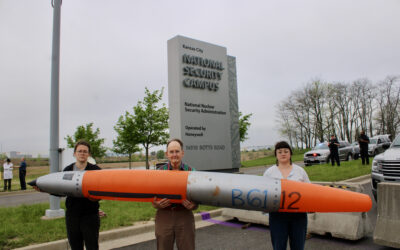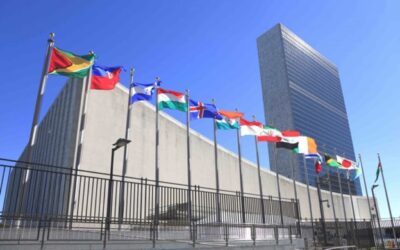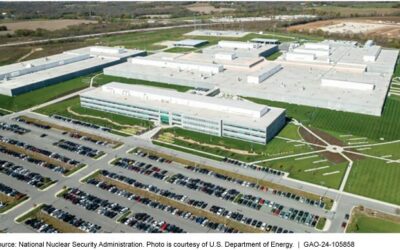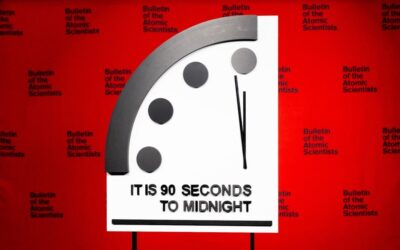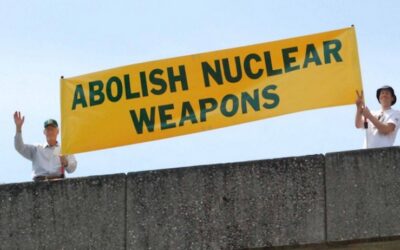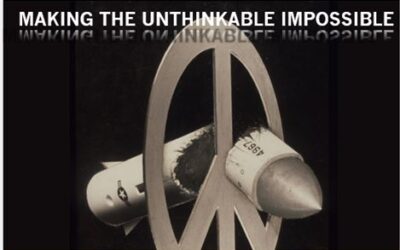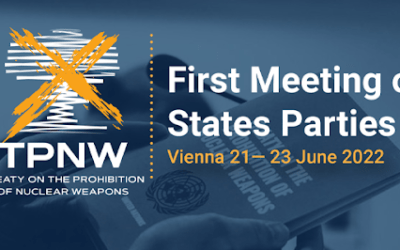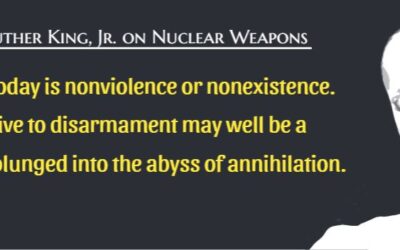Nuclear Disarmament/Redefining Security
Since 1945, when the United States dropped atom bombs on Hiroshima and Nagasaki, the world has faced an existential threat of nuclear war. Today the danger of another nuclear weapons use is at its highest since World War II. More than 13,000 nuclear weapons, most an order of magnitude more powerful than the bombs that destroyed Hiroshima and Nagasaki— 92% held by the U.S. and Russia, continue to pose an intolerable threat to humanity. The detonation of even a small number of these weapons would have catastrophic human and environmental consequences that could affect everyone on the planet.
All the nuclear-armed states (U.S., Russia, China, U.K., France, India, Pakistan, North Korea and Israel) are engaged in programs to qualitatively upgrade their nuclear arsenals. Over the next 30 years, the U.S. plans to spend an estimated $1.7 Trillion to replace its entire nuclear weapons infrastructure and upgrade its nuclear bombs, warheads, and delivery systems. An alarming trend is the increased scale and tempo of war games by nuclear-armed states and their allies, including nuclear drills. Ongoing missile tests, and frequent close encounters between military forces of nuclear-armed states exacerbate nuclear dangers.
The nuclear-armed nations maintain that nuclear weapons are the ultimate guarantor of their “national security”, but nuclear weapons endanger everyone’s security. Security must be fundamentally redefined in human and environmentally sustainable terms. UFPJ works with civil society organizations at home and internationally to promote complete nuclear abolition.
What People Need to Know about the Kansas City Nuclear Bomb Parts Plant
By Mary Hladky, PeaceWorks Kansas City. Kansas City Missouri is literally at the center of the 2lst century new nuclear arms race. Kansas City MO is home to one of the 8 major sites that make U.S. nuclear weapons. It has an innocuous name, the Kansas City National...
Some Reflections on the Second Meeting of States Parties to the Treaty on the Prohibition of Nuclear Weapons
Jackie Cabasso, Executive Director, Western States Legal Foundation; National Co-convener UFPJ* The Second Meeting of States Parties to the Treaty on the Prohibition of Nuclear Weapons (TPNW) took place from November 27 – December 1, 2023 at United Nations...
Kansas City, MO: Critical Node of the New Arms Race – RESIST
by Mary Hladky, PeaceWorks Kansas City, VP Co-Chair and member of the United for Peace and Justice, Coordinating Committee The Kansas City Nuclear Bomb Plant, officially named the Kansas City Security Campus, is of vital importance in the making of nuclear weapons. ...
“Oppenheimer” – the Good, the Bad, and the Ugly
The much-hyped Hollywood blockbuster film, “Oppenheimer,” a biographical drama about the “father” of the atomic bomb, directed by Christopher Nolan, opened July 21. The film focuses on the story of Oppenheimer’s leadership of the team that developed and tested the...
To Turn Back the “Doomsday Clock” Zoom Discussion, February 28 – recording now available
Photo credit: Jamie Christiani, Bulletin of the Atomic Scientists On January 24, the Bulletin of the Atomic Scientist moved the hands of its iconic Doomsday Clock forward, largely (though not exclusively) because of the mounting dangers of the war in Ukraine. The...
International Day for the Total Elimination of Nuclear Weapons, September 26
We are living in a time of extraordinary nuclear dangers. With Russia’s illegal war of aggression on Ukraine, which could eventually draw the militaries of the U.S., its NATO allies and Russia into direct conflict, Russia’s repeated threats to use nuclear weapons, and...
August 6 and 9: Make the Unthinkable Impossible!
August 6 and 9 will mark the 77th anniversary of the U.S atomic bombings of Hiroshima and Nagasaki. As the aging Hiroshima and Nagasaki A-bomb survivors (hibakusha) continue to passionately appeal for a world without nuclear weapons based on their conviction that “no...
Meeting of Nuclear Ban Treaty Condemns Nuclear Threats
John Burroughs, Senior Analyst, Lawyers Committee on Nuclear Policy Threats to use nuclear weapons made this year by the Russian government have surfaced a reality long suppressed in the media and public sphere: the incredible peril posed by ongoing reliance of...
TPNW Unites World Governments and Global Abolition Movement at First Meeting in Vienna
By Matt De Vlieger, former UFPJ National Coordinator, reporting from Vienna From June 21-23 the First Meeting of States Parties to the Treaty on the Prohibition of Nuclear Weapons (TPNW) was held at the United Nations in Vienna, with friends, allies, and members of...
Golden Rule Peace Boat to Voyage around “Great Loop” as Ukraine War Raises Concern about Nuclear War
by Gerry Condon The historic anti-nuclear sailboat Golden Rule is being prepared for an epic voyage throughout the Midwestern, Southern and Eastern U.S. In September the 34-foot wooden ketch will be transported by truck-and-trailer from San Francisco Bay to...
Time to start stopping the wars: No war in Ukraine, then no war anywhere.
The Ukraine crisis intensifies, with no clear path to resolution. A military confrontation between the United States and Russia, the world's most heavily armed nuclear nations, could spell disaster. It is time for the people of the world to cry Enough! No more war...
A Burst of Anti-Nuclear Activity!
January 22 will mark the first anniversary of entry-into-force of the Treaty on the Prohibition of Nuclear Weapons (TPNW). The TPNW prohibits the possession, development, testing, use and threat of use of nuclear weapons for the 59 countries that have so far ratified...

